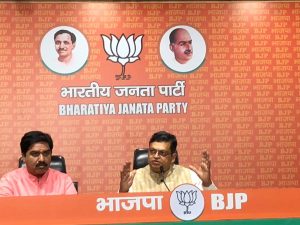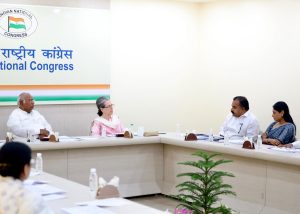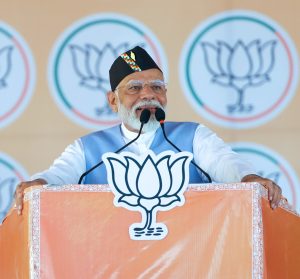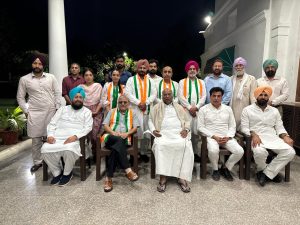Budget 2018-19: What experts expect from Jaitley
Budget 2018-19: What experts expect from Jaitley

NEW DELHI: India?s Finance Minister Arun Jaitley will present the Union Budget for 2018-19 on 1st February.This would be his third full-year Budget. So all eyeballs on his briefcase, what Jaitley is going to present for India.nnLets go through experts expectations from JaitleynnDr Narendra Shyamsukha, Founder Chairman, ICA Edu Skillsnn?Organisations like ICA Edu Skills which are partnering with various state and Central government in offering skill-building programmes to the country?s potential workforce in diverse sectors are looking forward to Budget 2018 with a lot of hope. We expect the Union Finance Minister to take measures which will facilitate giving market-relevant training to crores of youth in the country. One of the first things the government needs to do in this regard is cap the GST rate for all type of skill training irrespective of whether they government funded/CSR funded/ Self or Employer funded at 5 per cent. Alternatively it should provide for a refund mechanism for GST.nnSecond, the National Skill Development Corporation?s interest rate charged from skill partners should be reduced from the present six per cent to two per cent. The government needs to make adequate budgetary allocation so that in every taluka at least 10, 000 people can be given some sort of skill training.nnThe number of Pradhan Mantri Kaushal Kendras and budgetary support for them should also be increased. Finally,we are also looking forward to some income tax concessions tocompanies providing skill-development services.There should be 150% weightage for depreciation or expenditure on skilling. —Dr Narendra Kumar Shyamsukha, Chairman, ICA Edu SkillsnnDr SD Gupta, Chairman, IIHMR University, Jaipurnn”Time is ripe for India to set up world class universities and institute. The country already has some very famous colleges and universities in science, technology and management disciplines. But the government should come out with a policy to have many more. The scope of Higher education Funding Agency (HEFA) should be expanded to provide long term loans for private players to set up new universities. Institutes and colleges having research capabilities should also be given adequate tax breaks and help in conduct research,” said Dr SD GuptannPradipto Chakrabarty, Regional Director, CompTIA Indian
- n t
- PROBLEM: One of the key problems that the IT industry is facing is the reduced rate of outsourcing that has been the sustenance of IT industry in India due to increasing automation. We cannot depend on manpower driven industry for long. We need to immediately develop skills of manpower on cutting edge technology EXPECTATIONS: Government should create fund and set up Center of excellence on emerging technologies such as IOT, Robotics, and Artificial Intelligence within government and private institutions of higher education.
- PROBLEM: India lacks software product development capabilities which has a more sustainable revenue earning potential. EXPECTATION: Funding to institutions of higher eduction for Research and development aimed towards IT Product development.
- PROBLEM: Growing skill gap between what industry wants and what a fresh graduate acquired on completion of academic degree. EXPECTATION: Government should set aside budget allocations for international globally accepted certification and training programs which are standard Inez?s skill development tools for creating a baseline skill benchmark. Examples of such alliances and funding are commonplace in many developed as well as developing economies. Also, Government should spruce up a non- existent Apprenticeship program that helps industry and academic institutions get on same page on skill required from fresh graduates.
- PROBLEM: Huge vulnerability across segments to cyber threats, especially Defence, intelligence and Police forces. EXPECTATION: Cyber defence, incident response and creating a breach repository should be a clear budgetary priority. All institutions should have mandatory curriculum on cybersecurity so that we have adequate cyber defenders and penetration testers. Government funded awareness programs should be mandatory for IT users across India.
n t
n t
n t
n
nRajeev Bhardwaj, VP, HR, Sun Life Financial Asia Service CentrennIndia is at an inflection point and gearing up to unlock potential for growth across all sectors. We expect budget 2018 to stimulate the domestic economy by creating opportunities for job growth and new incentives for doing business. IT and ITES sectors, once the mainstay of the services economy, could be at the focus of this year’s budget. Government should take a view of measures that will help spurring demand of services generated from this sector by giving adequate tax breaks and making these services more competitive globally. The government should also take a view on promoting skilling and reskilling initiatives and setting up institutions to cater to the demand from the IT and ITES sector in the light of the great digital wave that swept across the country promoted by Digital India initiatives.nnDr Sanjiv Kumar, Director, International Institute of Health Management Research, Delhinn?The BJP had given high priority to health in its election manifesto, but the Modi government?s budgetary allocation for health in the last three years has not reflected its commitment to improve healthcare of its citizens. Here are some of the areas that need special attention in Budget 2018:nnThe central allocation for health must be doubled to fund healthcare for all citizens starting with the poor, the marginalised, the elderly, and expanded in a phased manner to cover all citizens.In last year?s Budget, the government committed to establishing 150,000 health and wellness centres. It needs to deliver on this commitment, and scale it up with adequate budgetary allocation.The government must also fund the creation of a cadre of hospital managers as is being successfully done in private sectors to prevent recurrence of Gorakhpur like tragedies.Keeping in mind the growing burden of non-communicable diseases which account for two thirds of deaths annually,the fund allocation for it must be increased substantially from the present 3% of the central health budget. The government must also provide funds to set up a mechanism to oversee that health is included in all policies to address social determinants. Finally, the government must invest in developing and scaling up technological innovations to improve access to quality healthcare.?nn







